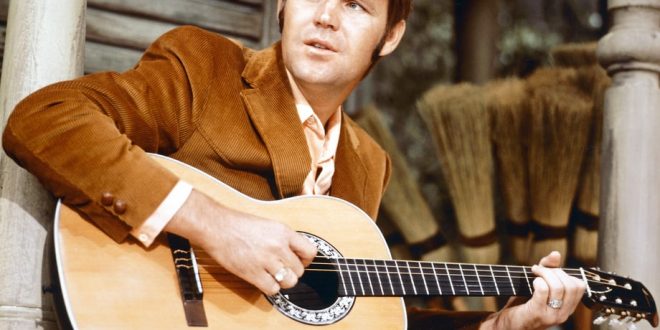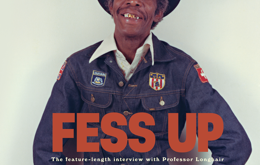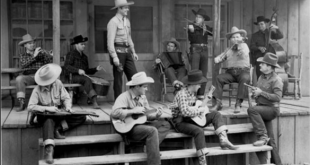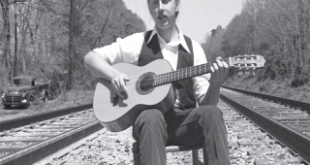Memory is selective. The Monterey Pop Festival, the Beatles’ Sgt. Pepper’s…, the Summer of Love—the 50th anniversary of these musical and cultural milestones has been widely noted in recent months. The Aug. 8th passing of Glen Campbell at age 81 summoned a forgotten 1967 marker—it was the year he became a star, and a very big one. Campbell was the runaway multiple trophy winner of the 1967 Grammy Awards, presented Feb. 29, 1968 at the 10th such ceremony. He took home Best Vocal Performance, Male; Best Contemporary Male Solo Vocal Performance; Best Country & Western Recording, and Best Country & Western Solo Vocal Performance, Male. The most any of the celebrated Flower Power players could do at the Grammys was only half as good—the Beatles earned two Grammys for Sgt. Pepper’s…(Album of the Year, Best Contemporary Album).
Mind you, the Grammy Awards are often chided for a lack of relevance, but they are representative of the music industry congratulating itself for its successes. Campbell, then 31, was a very big success in 1967, and continued to be so for a long time after. Understandably many Campbell obits have focused on his heroic late life battle with Alzheimer’s and his continuing to make music in spite of it. You’ve surely heard those brave stories by now. Instead of retelling them I’d like to recall Campbell’s key role in one of the less celebrated yet most popular streams in the `60s musical foment, one we’ll call the (then) new middle of the road.
Campbell’s long road started on a farm outside tiny Delight, Arkansas. Born into a large farm family on April 22, 1936, he had every reason to appreciate his adulation when it finally came. “I spent the early part of my life looking at the north end of a southbound mule,” Campbell often said, “and it didn’t take me long to figure out that a guitar was a lot lighter than a plow handle.” The guitar was a $5.00 Sears catalogue model, and Campbell devoted himself religiously to its study. In tenth grade he dropped out of school and began working what he remembered as “dancin’ and fightin’ clubs” across the Southwest with an uncle, Dick Bills. He formed his own band, Glen Campbell and the Western Wranglers, in Albuquerque in 1958. Two years later, he packed his wife and daughter in a `57 Chevy and headed for Hollywood.
For a guy with Campbell’s talents, it was the right move at the right time. Southern California had a thriving country music scene as well as surf bands: it was the era of rock guitar instrumentals. Campbell worked briefly with the Champs of “Tequila” fame before settling into a career as a studio guitarist at sessions for everyone from Frank Sinatra to Elvis to the Mamas & the Papas to Merle Haggard. It was invaluable experience: “Studio musicians,” Campbell told Scott Cohen, “they usually are better musicians because they have to be able to cut everything. You got to play in tune, play with feeling, and you got to get it on tape.” Despite a comfortable sideman’s income exceeding $50,000 annually, Campbell still hankered for the spotlight.
In 1965, he replaced an ailing Brian Wilson on a Beach Boys tour. “I looked like Prince Valiant,” Campbell recalled. On his own, Campbell flirted with go-go era pop stardom, but it eluded him. “I must have played arenas like [San Francisco’s] Cow Palace three or four times,” Campbell told Rolling Stone’s John Grissim. “The bill was Chubby Checker, Sonny & Cher, the Byrds, and Many Others. That was back when I was doing Shindig. I did a lot of rock & roll on that show, everything from `What’s New Pussycat?’ to `Cumberland Gap.’” Albums like Big Bad Rock Guitar of Glen Campbell went nowhere, and songs like the 1965 antiwar anthem, “Universal Soldier,” did only slightly better. Campbell was considering chucking his solo career and returning to full-time session work when, in 1967, he found his career-making song.
It came from the pen of John Hartford, a songwriter making a name for himself in Nashville as `the town hippie.’ His “Gentle on My Mind” was the perfect song for its time, and Campbell its perfect singer. Hartford’s lyrics were almost a parody of Freewheelin’ era Bob Dylan but with a Nashville tunesmith’s mainstream sense of melody. On the surface it was a conventional love song, yet its lyrics, both archaic and poetic in their stylized language, hint at `protest song’ Dylan. While opining about love, under the surface it felt like an implied protest song—or was it just a dopey love song with poetic pretense? Well, let’s figure anyone extoling a lover who is `gentle on my mind’ is not a warrior at heart. Yet the guy who made a national hit of the song was a square-jawed clean-cut Anglo all-American boy type. (TV Guide’s Cleveland Amory called him “a big, blond…farmboy-charmboy type.”) Neither bearded nor beaded nor weird nor effeminate was Glen Campbell, and so a song that could be all things to all people (pop, country, easy listening, folk: composer Hartford won the `67 Grammy for Best Folk Performance for “Gentle…”) became a hit and turned Glen Campbell into a star. When did it debut on radio? July 29, 1967, smack in the middle of that fabled Summer of Love.
Thus the foundation was laid for Campbell’s leading role in the (then) new pop middle of the road. It was a time when cultural upheaval was being voiced in music, and at least as many of us felt threatened by that as embraced it. A lot of the streams of (altered) consciousness celebrated in psychedelic music seemed scary to many, and a lot of the resulting music indulgent, unfocused, and too loud. Yet there was the undeniable allure of the new. What if just enough of that edginess could be harnessed by professionals and blended with tried-and-true pop music formulas? Could all this wild stuff afloat in the cultural air be tamed and co-opted to create mainstream hits? Campbell was determined to prove that “Gentle…” was not a one-time fluke.
He turned next to a song Johnny Rivers had recorded in 1966. “I heard the song and I loved it,” Campbell recalled. “Going from L.A. to Phoenix to Albuquerque, where I lived before I moved to L.A., I felt I was tracing my steps back to home [Arkansas].” The song came from a kindred spirit, Jimmy Webb, a Baptist preacher’s son from Oklahoma. Much has been made of Webb’s role in Campbell’s success, though less credit than is due has been given another key player in Campbell’s court, producer Al De Lory. Like Campbell he was a former studio musician: he played keyboards on several Phil Spector productions and on the Beach Boys’ Pet Sounds album. De Lory moved up to arranging, a role producer Ken Nelson hired him for at Capitol Records in the mid-Sixties. De Lory’s lush frames for Campbell’s signature hits are inseparable from our experience of them, or our sense of Campbell. Imagine “By the Time I Get to Phoenix” without the orchestral setting, just voice and guitar (or, as Webb, wrote it, piano). It would sound sadly spare.
But the full production of “Phoenix,” released late October `67, became Campbell’s successful follow up to “Gentle…,” solidifying his stature as the brightest star of the (then) new middle of the road constellation. The new MOR was not elevator music, Martin Denny exotica or Sinatra sorts murmuring `standards’ of Cole Porter vintage. These were new songs, new arrangements, contemporary sounds which reflected the world of the day but which were not the least bit confrontational. It wasn’t all happy music or soothing sounds, but none of it was threatening: no one was going to get hurt hearing it. In the fraught cultural climate of the late Sixties, that counted for something.
1968, you may recall, was a year of impending apocalypse: assassinations, riots, war, and the election of Nixon. It was also the year Glen Campbell called Jimmy Webb requesting he write a follow up to “Phoenix.” Webb had just returned to L.A. from a trip to visit family in Oklahoma, and on the way West drove through the vast emptiness of the Oklahoma panhandle. “I was drivin’ along, blinkin’, trying to stay awake,” Webb recalled, through a barren flat landscape interrupted by little more than an endless army of phone poles. “All of a sudden,” Webb recalled, “there was somebody on top of one of those telephone poles—out of thousands of telephone poles, there’s one that has a guy on it, and he had one of those little telephones hooked into the wires.” The song that apparition inspired debuted on radio Nov. 2, 1968, three days before the presidential election. Commenting on the songs he wrote for Campbell the day after he passed, Webb said, “`Wichita Lineman’ is the quintessential Glen Campbell record.” It’s also one of the enduringly great pop records of its time.
Webb’s lone lineman somehow personified the era’s angst without explicitly referencing any of it. Campbell, Webb recalled on Aug. 9th, “sang like an angel” on the record. And there’s no overstating the importance of De Lory’s breathtakingly beautiful production. The recording soars with cinematic sweep, investing the Big Sky landscape where Webb saw his lineman with the grandeur of an Elmer Bernstein Western soundtrack. Rumor has it Campbell himself played a Dan Electro six-string bass for that twangy guitar solo. All the components blended blissfully to deliver some of the sweetest imaginable ear candy. Little wonder audio engineers Joe Polito and Hugh Davies nabbed the 1968 Grammy for Best Engineered Recording for “Wichita Lineman.”
The day after he passed, one NPR tribute called Campbell “the most successful country crossover artist.” That was meant as a compliment, of course, but it’s a fundamental misreading of Campbell’s career. Rather than a country act trying to `go pop,’ Campbell was a true musical chameleon. His early hits were as much pop as country, and did very well on what were then called Easy Listening stations, too. Not only did he embody pop music’s new MOR, he looked good and was disarmingly personable as well. A TV presence was inevitable: along with myriad other appearances, he hosted The Glen Campbell Good Time Hour from 1968-1971. For a few years, anyway, Campbell was a Nam era variant of the reassuring presence Bing Crosby had been on radio and TV to prior American generations. There may be war and economic uncertainty but, hey, good times are here when ol’ Glen’s on TV.
Campbell’s biggest hit signaled the end of his charmed reign as MOR king. 1975’s “Rhinestone Cowboy” enjoyed a three-week run at the top of both the country and pop charts. Sadly, Campbell’s biggest hit was coldly calculated schlock and self-parody. It was an unashamedly formulaic song and production, all the hooks plugged in at the right places to guarantee Pavlovian responses. A cheap shot, “Rhinestone…” suggested Campbell no longer cared.
Then 1977’s cover of Allen Toussaint’s “Southern Nights” was a pleasant return to form. It was a first-rate performance of a fine song, destined to be Campbell’s last #1 hit, topping both country and pop charts. A decade after his breakout success, Campbell appeared poised for a creative rally. That moment was short lived. It was a poor career move for Campbell to have his mid-life crisis, circa 1980, in the arms of Tanya Tucker and in the company of vast quantities of cocaine and booze. Tabloids were titillated but fans used to his whistle-clean image were unsettled by tales of a coked-up Campbell walloping Ms. Tucker. Ironically his last country top10 hit came in 1989 with “She’s Gone, Gone, Gone,” a 1960s Harlan Howard song that was the sort of `hard country’ Campbell’s breakthrough records were emphatically not. It was a time when country briefly revisited an earlier era’s honky tonk sounds and, though Campbell was an L.A.-based session musician turned king of MOR, he may by then have been seen (mistakenly) as part of Nashville’s Old Guard. So his last hit of any substance was with a song he would not have dreamed of recording during his salad days.
Musical chameleon that he was, Campbell likely lost no sleep over that. He could successfully sing and play most anything, a quality reflected in the blind-man-and-the-elephant nature of the varied posthumous tributes offered online by those who knew Campbell. Alice Cooper extols him as a rock guitarist: “Eddie Van Halen learned a lot from Glen,” quoth Alice. One little-known aspect of Campbell is that he made a folk-bluegrass album in 1962, Big Bluegrass Special, credited to the Green River Boys featuring Glen Campbell. It offers one of his most soulful vocals in a stunning performance of the Merle Travis classic “Dark as a Dungeon.” Had Campbell become a folk star during the brief folk boom that crested in 1963, he’d likely have missed his chance to become the king of MOR a half decade later. But he kept his date with destiny, and his memory has surely been honored with toasts from members of the International Brotherhood of Electrical Workers. The song Jimmy Webb calls Campbell’s finest moment has been adopted as a sort of anthem by the IBEW. David Crary, himself a singer- songwriter and member of Tulsa local 1002, recalls his reaction when he first heard it as a kid: “I thought being a lineman has to be a cool job if you hear a guy singing about it on the radio.”
 Baja Review A community newspaper serving Ensenada, Valle de Guadalupe, and Rosarito in Northern Baja California
Baja Review A community newspaper serving Ensenada, Valle de Guadalupe, and Rosarito in Northern Baja California





